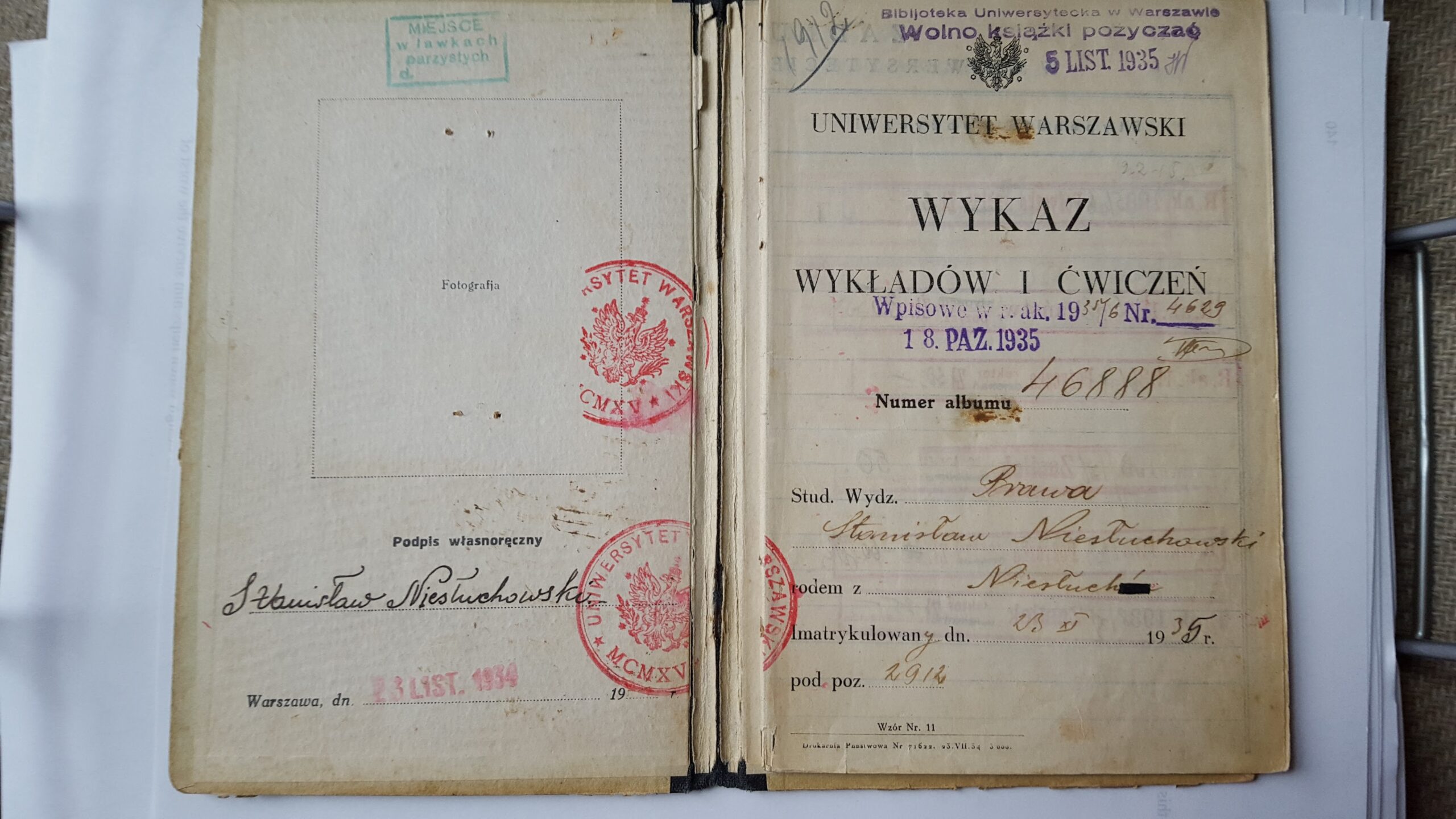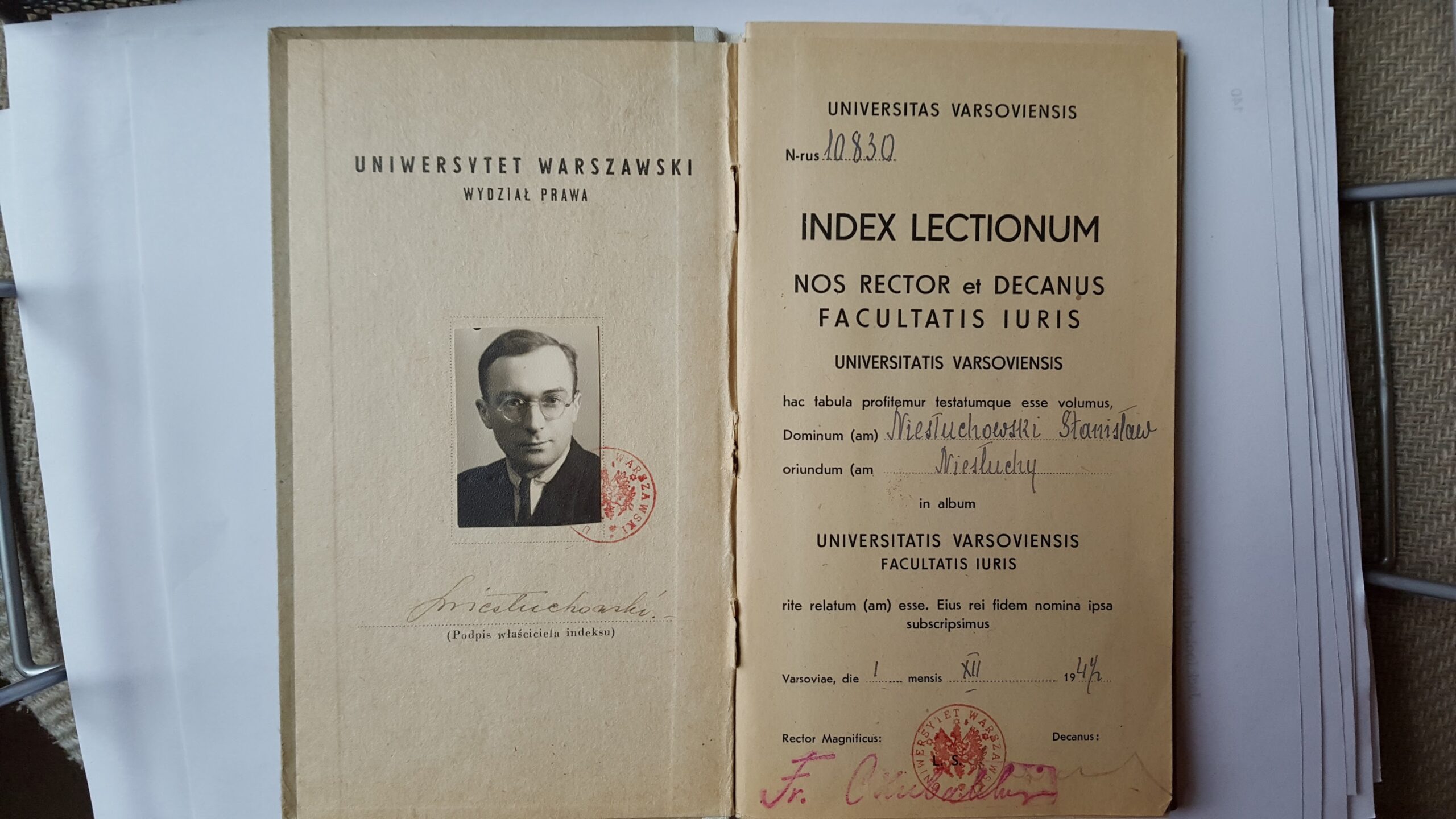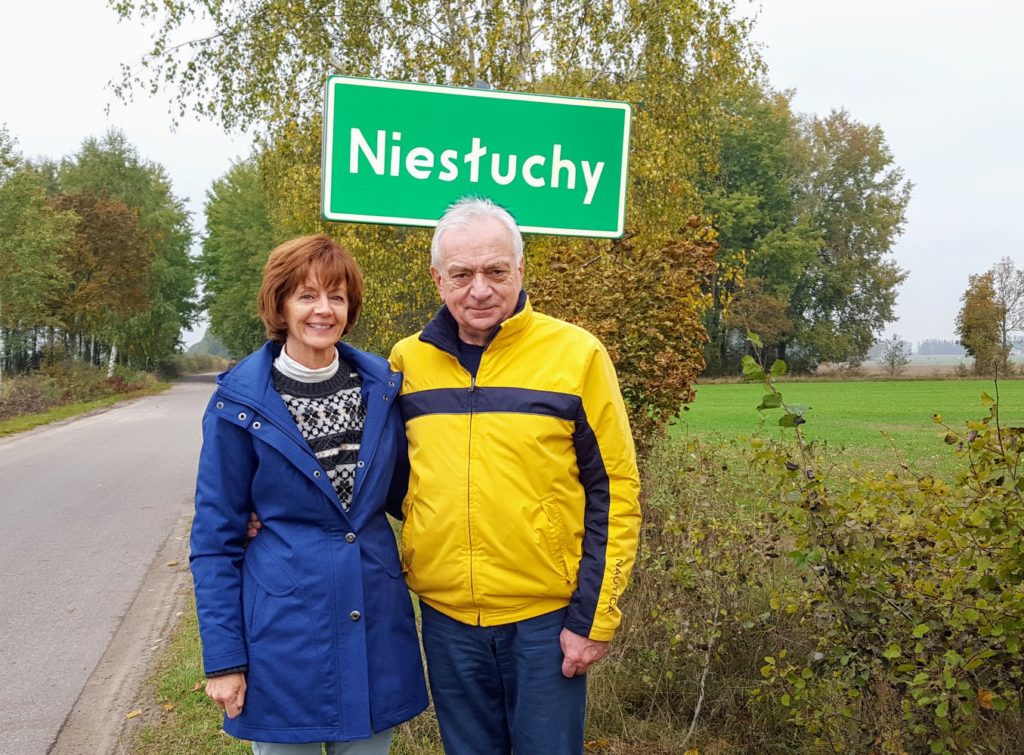A couple of months ago, Bonnie and I came back from an exhausting trip to the continent where I spent the first thirty years of my life. Four countries, countless cities and many sleepless nights. But we wouldn’t put a price, monetary and otherwise, on all the memories we’ve got.
There is a village in Poland where my father was born. Not big, but has our name on it. I was there last time some fifty-five years ago. I am always in awe thinking about how human memory works. What kind of chemical (electromagnetic?) reaction makes us remember things which had happened more than a half century earlier? But it does, and makes life worth living.
The place I remember, overall, didn’t change much, but a few things had. The same flat fields, this time of the year, neatly cleaned with hay rolled in the shape of big barrels and wrapped in white plastic. This will be saved to feed the cattle during the coming winter. The same birches covered with white bark, most of them along the small creek I used to jump over quite a few years ago. The old, thatched house is gone and replaced with a new one, this time of brick. The barn, which I still remember, was replaced with a new one and then another one added. The old well I used to crank buckets of water from, is filled and capped, since the new house now has plumbing.
The best part of meeting with my cousin was reminiscing and comparing the stories from the distant past. I found out that the old house was preceded by another one, built maybe a half-a-mile away. That eighteenth century house was leveled and nothing is left now. Except for an old oak tree. The arboretum symbol of strength and persistence was dug out and transplanted to a new place. It’s now some hundred-thirty years old. Then Bonnie had an idea. What if we take some of the acorns from the old tree, carry them over the ocean and transplant to our new property in Chapel Hill? To continue tradition? Seemed thoughtful and appealing.
While walking the memory line with my cousin, I found out how my father financed his education.
There were three brothers and two sisters in my dad’s family. The girls were expected to marry and boys were to work on the farm. My dad wasn’t a person of manual work and liked to spend time with books. The deal was made, and he was sent “to schools”. First gymnasium, then lyceum and then a law school. But at that time, higher education in Poland was not free and someone had to put up money. So one-third of my grandfather’s land was used as a collateral for the loan to pay for my father’s tuition. Money was put up by a one of their wealthy neighbors.
Dad started his legal education at Warsaw University in 1935. I still have his little student’s book. All the entries were made in his neat handwriting and confirmation of attendance with the signatures by the professors. And every course had an annotation “paid” with a proper amount of tuition. He was to graduate in June 1939, but somehow he didn’t complete the one last course, Study of Poland and the Contemporary World. So father enrolled in the fall semester. It was to start on September 1st. The same day my mother was to start her high school.
Well, neither of these had happened. The Germans decided they had rights to re-arrange the future of our country, and thus six years of cataclysmic war followed. The Poles were killed with virtually no constrains, and with German precision, our material and intellectual property was methodically destroyed. At one point after the fall of the Warsaw uprising, our family was given a couple of hours to evacuate the apartment building, since the Germans decided to level it with bombs and finish the job with flamethrowers. Not much can you take with you in two suitcases, but my always astute mother found time and room to pack father’s little academic book with the record of his courses.
This was a lifesaver for all of us since after the war was over and after most of the material things were vaporized, all students and graduates still had to prove their curriculum. One of my father’s friends presented himself as an engineer, and he wasn’t. Since he couldn’t come up with proper documents, the employer demoted him and the shamed man had to leave the town.
So after the war was over, my father enrolled back to the University and finished the last missing course. And he graduated in 1949. Exactly ten years after the war interrupted his legal education. He was 37 years old.
But there is more to the story. Being able to work in his legal profession, and with the help of my resourceful mother, he was able to put away the required sum and pay back the money taken as his educational loan. The land now was cleared and became a part of his two brothers’ estate. I’m uncertain if my mother liked that type of solution.
I still have his two academic booklets (we call them ‘indexes’). They prove to me that the drive for education in my family is forceful.

This one from before WWII

And that one after full graduation.


